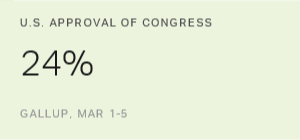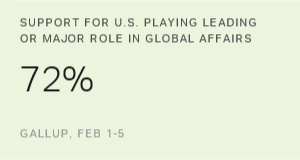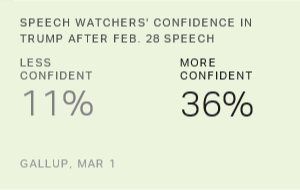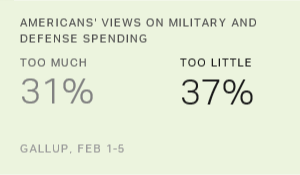Story Highlights
- Approval still higher than it was in every month of 2016
- Highest approval of Congress in past decade was 39% in March 2009
- 43% of Republicans, 12% of Democrats approve of Congress
WASHINGTON, D.C. -- Congressional job approval declined slightly from 28% in February to 24% in March. The March rating is still higher than in any month from June 2011 through January 2017.
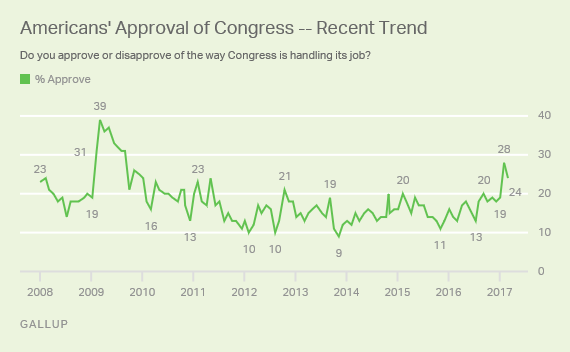
Approval of Congress after the new Republican Congress was sworn in and Donald Trump was inaugurated as president. Approval .
The highest level of approval in the past 10 years was , shortly after former President Barack Obama's inauguration and when the Democratic Party controlled Congress.
Republicans and Democrats Still Widely Divided on Approval of Congress
February's uptick in support for Congress stemmed from a surge in approval among Republicans. This most likely reflected their hopefulness for Congress and the presidency as the nation's capital was turned over to Republicans after several years of divided government. Likewise, the retreat of approval in March reflects a slight easing of Republican exuberance.
Still, Republicans retain a far more favorable view of the legislative branch than Democrats do. Based on the March 1-5 poll, 43% of Republicans approve of Congress, while only 12% of Democrats and 22% of independents say the same.
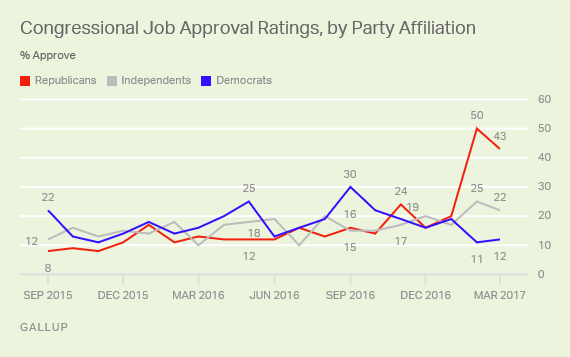
As recently as January, 20% of Republicans approved of the job Congress was doing, despite the fact that their party controlled both houses. The rapid rise in approval to 50% last month appeared to be related to President Donald Trump taking office and promising to pass legislation beneficial to GOP interests. The same reasoning may have caused the surge in Democrats' approval of Congress when Obama assumed office as well. However, Republican approval retreated this month, as did approval among independents.
The current Congress approval gap of 31 percentage points between Republicans and Democrats is not as wide as it was last month, at 39 points, but is still greater than the gaps that existed in 2015 and 2016. It is also unusual for a party to give Congress low approval ratings when it has control of both houses, which has been the case in the past two years of Republican control of Congress before Trump's election.
Bottom Line
Congress has not passed a great deal of legislation so far this term, with most of the past month consumed by the Senate confirming Trump's cabinet picks. While Republicans have talked much about "repealing and replacing" the Affordable Care Act or comprehensive tax reform, the legislative agenda in the Trump era has yet to take shape.
Americans seem to be basing their approval of Congress on partisan beliefs and thoughts for the future. The spike in Republican support may be due to hope for progress on the GOP agenda now that a president is in place who would sign conservative bills. If Congress does not live up to these expectations soon, approval of the legislative branch could retreat to below 20%, as it did in Obama's second year in office until the end of his presidency.
Historical data are available in .
Survey Methods
Results for this 优蜜传媒poll are based on telephone interviews conducted March 1-5, 2017, with a random sample of 1,018 adults, aged 18 and older, living in all 50 U.S. states and the District of Columbia. For results based on the total sample of national adults, the margin of sampling error is ±4 percentage points at the 95% confidence level.
Each sample of national adults includes a minimum quota of 70% cellphone respondents and 30% landline respondents, with additional minimum quotas by time zone within region. Landline and cellular telephone numbers are selected using random-digit-dial methods.
View survey methodology, complete question responses and trends.
Learn more about how the works.
